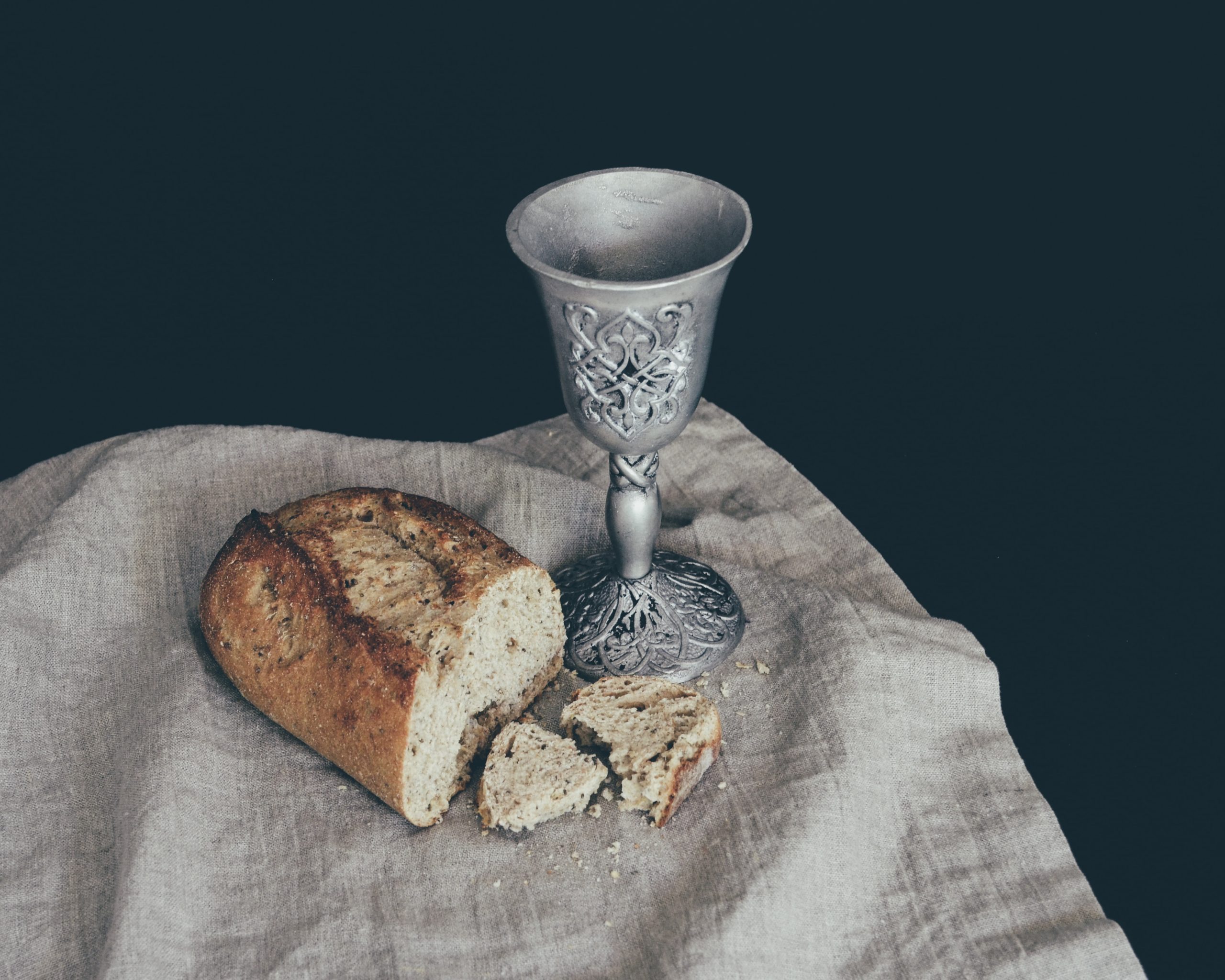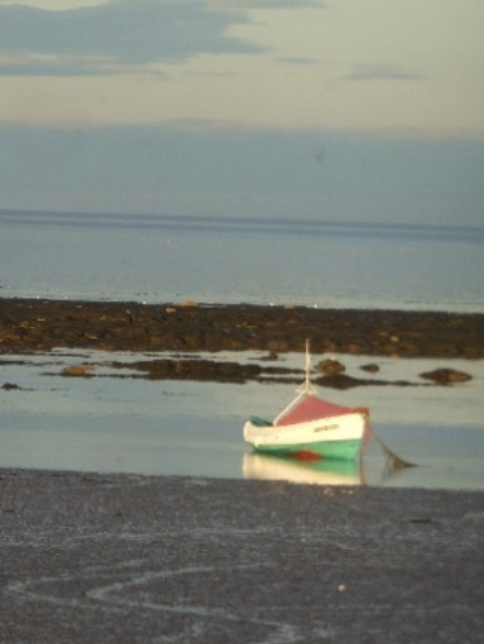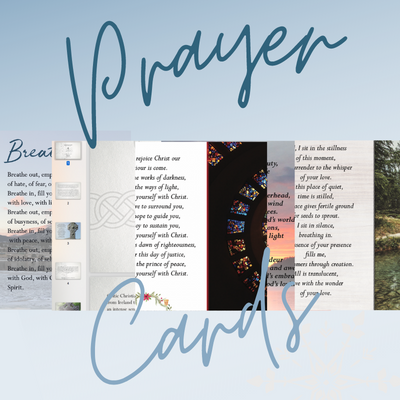by Carol Dixon & friends
An Easter Song by Stuart Brock
The Gardener
(Tune Northumbrian Traditional: Have you seen my bonny lad?)*
‘Tell, if you know where my Lord is laid,’
cries Mary, heart torn with grieving.
The Gardener looks on, his heart filled with love.
But sorrow stops Mary believing.
‘O Mary, it’s me!’ the Gardener replies,
‘Can you not see through your grieving?
A while I was gone, but now I return.
Dry all your warm tears, start believing.’
‘Lord, I believe, I understand now;
(the power of death was deceiving),
and doubt and despair are things of the past:
now I can live truly believing.’
When life is filled with darkness and fear,
or the heart is weighed down with grieving
the Gardener is near and calls us by name
and leads us through doubt to believing.
© Stuart J. Brock
*Tune:
Grateful thanks to Stuart for allowing me to use his beautiful song

Photo by Bruno van der Kraan on Unsplash
He spoke my name
I wasn’t aware of where I was heading
but found myself back in the garden.
He spoke my name.
That was how I knew it was him.
No-one ever said my name
like that, before, or since.
I’d had to get out of the city –
the claustrophobic confines
of the upper room, the sombre
atmosphere, forced conversation,
drove me mad; so I stumbled
down the outside stair onto
the quiet paving stones below
and followed my feet.
I wasn’t aware of where I was heading
but found myself back in the garden.
I hadn’t meant to go there
yet when I reached the place I thought
at least I’d be doing something;
replacing the spices, re-arranging
the grave clothes, anything
to keep me close to him.
Then I remembered the stone,
the huge boulder blocking the way,
sealed with Caesar’s insignia,
ringed round with Roman guards.
I couldn’t bear to turn back,
empty hearted, now I’d come so close,
so I pressed on, hoping against hope
for a miracle, just a small something –
a kindly guard, or friendly passer-by –
so I could see him just once more,
at peace. Not like the last time:
barely cold, broken, lying
in his anguished mother’s arms
as we struggled to do the right thing
and prepare his battered body
before the Sabbath curfew began.
But when I reached the tomb – nothing!
No seal, no stone, no body;
an empty shell with no-one inside.
Oh God! Don’t say they’ve taken him,
defiled in death the body of the Man
I loved; who loved me, and all who
followed, with the passionate love of God.
I looked around frantically and,
in the distance, I espied a figure
in the burgeoning daylight, silhouetted
by the brightening rays of early sun.
Thank God! The gardener.
I hastened to him, falling at his feet:
‘Oh Sir,’ I said, ‘If you know
who has taken him, tell me,
so I can go and get him.’
And then I heard my name,
spoken, as if I’d never heard it before:
‘Mary!’ and I knew. In that moment
I knew everything.
He gently prised my grasping hands
aside and raised me to my feet,
and bade me tell the others
he would see them, back in Galilee.
He spoke my name.
And all my world was filled with joy –
the joy of a new beginning.
Easter Communion
Tune: Silent Witness -Handel (Have you not seen my lady?)
Lord we have seen you walking
The garden at dewy dawning;
Lord we have heard you talking
As birdsongs greet the morning;
And Lord we have met you living
Where once we thought you dead;
And we rejoice to find you
Blessing the broken bread.
Lord we have seen you caring
For those who were filled with sorrow;
Lord we have heard you sharing
Your hope for a new tomorrow;
And Lord we have felt you filling
Our lives with your love divine,
And we receive your new life
As we share bread and wine.
Easter communion midi here

Photo by Debby Hudson on Unsplash
The Walk to Emmaus – Mary, wife of Cleopas reflects….
We were walking slowly. Taking our time you might say, for there were about seven miles to go. I’m not sure that I really wanted to return to our lodging at Emmaus. I wanted to stay in Jerusalem with the others. The other women, that is. We needed to think about what had happened to us that morning. What we had seen and heard. Even if none of the men believed us. Perhaps, just perhaps, we need not be in despair, as we had been since Friday evening. But Cleopas wanted to get away. He was heart sick with grief and disappointment. He had been so sure that Jesus was the one who would save us, which for him meant somehow getting rid of the Romans. He wasn’t exactly a zealot, you understand, but if push had come to shove, he was ready to man the barricades under Jesus’s leadership. So he had been desolate since Friday, and he was indignant that the strange message that Jesus had risen – even if he didn’t believe it – should have been given to women.
He couldn’t leave it alone. He mourned the death of our leader. He lamented the lost opportunity. He questioned me about what the men – the angels? – had said to us. I wished he would be quiet, though I didn’t say it. I had never been quite sure about Jesus as a king in this world, leading a military coup. It didn’t seem like him. It contradicted most of the things he had ever said. And I wanted to think quietly about what happened this morning. To ponder in my heart.
Then I realised there was someone walking beside us. I don’t know when he joined us, or where he came from. I didn’t think it was anyone I knew. He seemed to be listening to Cleopas’s diatribe, and my dutiful answers. Then he spoke. It wasn’t a voice I recognised, and yet…
“What is it that you are talking about?” We stopped and looked at him.
Cleopas said “You must be the only person in Jerusalem that doesn’t know about what’s been happening there these last days.” I smiled to myself. Trust Cleopas to think his concerns were at the forefront of everybody’s mind. I was pretty sure that most of the people who were visiting Jerusalem had kept well out of the way of trouble and only had a hazy idea of the matter. Cleopas continued, “How the authorities took Jesus of Nazareth who was a prophet and a teacher, and our leader, and handed him over to the Romans to be crucified. We thought – hoped that he was the one who would deliver Israel, but we can forget that now. And then, if you please, some of the women in our group,” he carefully didn’t look at me, “went to the tomb this morning and came back with a cock and bull story about him having risen from the dead. I ask you!”
The stranger shook his head and spoke rebukingly – yet I thought there was a smile in his eyes. “How foolish you are. Don’t you understand anything you’ve been told? Don’t you remember what the prophets have said?” Then he set to and explained everything Isaiah and the other prophets has said about the Messiah, and what would happen to him. It made perfect sense. Suddenly, Friday didn’t seem such a disaster. We could understand why it had to happen. I was almost happy. I felt a warm glow inside. It reminded me of that time we sat in a great crowd on the hillside and Jesus told us how we should behave.
By the time he’d finished we had reached Emmaus. As we turned into the house, the stranger seemed to be going on, but Cleopas stopped him. “It’s getting late,” he said. “Come in and stay with us.” So he came in with us. I put food and wine upon the table. We sat down and he picked up the bread. I watched his hands, fascinated. He blessed the bread, broke it, and handed it to us, with that gesture we had seen so many times. We both gasped. It was the Lord. But even as we realised, he just wasn’t there anymore.
We stared at each other. We knew that this was something we had to share with everyone. With the whole world! But first…. “We must go back to Jerusalem and tell the others” I said. “Are you sure you want to? Won’t you be too tired?” he asked.
“Tired? I feel as if I could walk all round the Middle Sea and not be tired.” So we set off back the way we had come. But oh, how differently. We discussed what Jesus had told us, making sure we understood what he meant. We laughed and rejoiced. Cleopas wasn’t grumbling now.
It must have taken us nearly two hours to get back, but it felt like just a few minutes. We burst into the room where our friends were. “The Lord is Risen!” exclaimed Cleopas. “Indeed He is.” They replied. “Simon has seen him.” Poor Cleopas. He so wanted to be first with the news. But he swallowed his chagrin and told them all that had happened and what Jesus had said to us during our walk to Emmaus.
© Fiona Middlemist
Thomas
I’ve just spent the worst ten days of my life! Everything was wonderful – then it fell apart.
That last supper with Jesus was something special – despite the undercurrents of unease and the usual bickering over which one of us, his closest friends, would be the greatest. Well we all failed that one spectacularly I can tell you. Judas most of all. I still can’t understand why he did it – betraying Jesus to the authorities. Peter didn’t come out too well either – denying he ever knew him. I must admit though, at least Peter had the guts to go with John to the trial (if you can call it that – stitch up more like). The rest of us just scattered.
I couldn’t follow him to the Cross. Seeing the Lord we loved reduced to a tortured, bleeding lump of humanity. The stench of sweat and excrement – of death, hanging in the air. But it wasn’t that I couldn’t stand. I suppose I could have steeled myself to watch his stretched out agony, the pain of listening to them taunting him, the embarrassment of his being killed as a common felon. No, it was his love I couldn’t bear. Still loving to the end. Loving them – his enemies; loving us – his unfaithful friends; loving me.
And afterwards – it was all we talked about in the upper room. Every sordid detail, over and over again. Then on the Sunday that madwoman from Magdala came in with such a tale. She’d seen him, talked to him, touched him. I couldn’t take it. I just cut and ran. When I got back the rest of them were at it. “You’ve just missed him” they said. “He’s been here. We gave him the leftovers from supper.” I thought they were having me on at first. Then I realized they meant it.
I told them straight. “You’re all crazy. I’ll never believe it – not unless I can put my finger in the nail holes and stick my hand in the wound in his side.” I turned my back on it all and walked out.
……. A week later his disciples were in the house again, and Thomas was with them. Though the doors were locked, Jesus came and stood among them and said, “Peace be with you!” Then he said to Thomas, “Put your finger here; see my hands. Reach out your hand and put it into my side. Stop doubting and believe.” Thomas said to him, “My Lord and my God!” Then Jesus told him, “Because you have seen me, you have believed; blessed are those who have not seen and yet have believed.” [John 20 v 26-29]
A prayer
Loving Lord,
often like Thomas we doubt your power
to rise above the death-like situations
in our lives and in our world.
When we recall the sudden deaths,
murders, painful experiences,
and serious illness of people around us;
When we think of the wars,
bombings, famines,
and other disasters which wreak havoc
around us, we want to run away and hide.
Help us to have the courage
to reach out and touch your scars,
borne for the world, and for us,
so that we may be healed,
renewed, and see your risen life
in the broken people and places
of our world, and acclaim you again
as our Lord and our God. Amen.

Photo by Todd Rhines on Unsplash
Watcher on the shore
‘There stood Jesus on the beach; but the disciples did not know it was Jesus.’ [John 21: 4]
Sitting on the shore
watching the boats,
he reflected on past
events. He’d had a good
three years – the best
and, no matter what
the future held, nothing
could take that away
from him, or them.
He regarded them more
closely; hearing their
muted curses across the still
water he recognised how
frustrated they must be –
experienced fishermen
that they were – working
all night without success;
perhaps they wished they
were back to catching men!
He looked at the sea
again and saw the dark
shadow of a shoal on the
starboard side of the boat.
How simple and clear cut
everything was when viewed
from a distance, removed
from the involvement of it all.
To be able to look on
with detachment while still
caught up and caring
about the task in hand;
that was the answer –
the God’s-eye view.
‘Cast your nets on the
other side,’ he called
and stirred the fire
to cook the breakfast
they were bringing in.

At the lakeside
It was the lad – John – who saw him first;
we were too busy hanging onto the bulging net to notice him,
and maybe just a bit resentful at a stranger on the shore
telling us our business.
‘It’s him’, he said. ‘Who?’ I asked, as I straightened up.
‘It’s the Lord, who else?’ he replied,
with a grin too wide for his face.
I shaded my eyes against the low dawn light and stared
and my heart leapt – and froze – within my chest.
I grabbed my garments and plunged over the side of the boat,
sinking to waist level in the waves as I had before
when he’d called me to come to him across the water.
Struggling up the shingle I fell in a heap at his feet
and he grabbed my hands as he had the other time
and hauled me up till we were eye to eye.
The others arrived, bustling up the beach, bringing fish
to lay on the fire beside the little loaves already baking there.
‘Come and eat’ he said as he broke and shared the feast.
Afterwards when everyone was sated and settled
he looked at me across the fire. ‘Walk with me’, he said
and we set off along the shoreline.
‘Simon, do you love me more than these?’ he asked,
indicating the others sprawled out on the sand.
‘Yes Lord,’ I answered automatically. ‘You know I love you.’
‘Feed my flock’, he said.
A little further on he asked again: ‘Simon do you love me?’
(Why does he call me Simon? My name is Peter – the Rock
– the name he gave me himself. Not much of a rock-man now,
haunted as I was by my denial and desertion,
as he went to his death).
‘Yes, Lord,’ I said again. ‘You know I love you.’
‘Look after my lambs,’ he said.
And then, O agony, he asked a third time:
‘Simon, do you love me?’.
He gazed into my tear-filled eyes, my tear-filled heart,
my tear-filled soul and we were back in the courtyard
beside another fire. ‘Lord, you know everything’ I cried.
‘You know I love you.’
‘Lead my sheep,’ he said, and smiled;
and the sun rose in the sky, and the sea shimmered,
and the world was wonderful.
I looked back and saw the lad was following.
‘What about him, Lord?’ I asked.
He turned, regarding John with that look of love
reserved for children and for all pure hearted ones.
‘Not your concern,’ he chided gently.
‘You, you follow me.’
And I did.
to the end….
So can you.

Photo by Sebastien Gabriel on Unsplash
I Corinthians 15 – He is risen
He is risen, He is risen.
Listen to the message which was given to you,
The good news of our Lord Christ,
Hear now once again the word you have received,
And on which your faith stands firm:
He is risen, He is risen.
If it was for nothing that you first believed,
Jesus Christ died for our sins,
How we told how he was raised to life again,
And he lives that we might live in him:
He is risen, He is risen,
Alleluia, He is Lord.
He is risen, He is risen,
Alleluia, He is Lord.
Now to him who gives us all that we can dream,
Only God whom we adore,
Jesus Christ who died for all our sins;
Glory now and evermore.
He is risen, He is risen,
Alleluia, He is Lord.
He is risen, He is risen,
Alleluia, He is Lord of all. © Simon Dixon

Photo by Mohamed Nohassi on Unsplash
 Prayer cards are available in the shop for many occasions and seasons–from everyday pauses and Lenten ruminations to breath meditations and Advent reflections, enjoy guided prayers and beautiful illustrations designed to delight and draw close. Many are available in single sets, sets of three, and to download–even bundled with other resources!
Prayer cards are available in the shop for many occasions and seasons–from everyday pauses and Lenten ruminations to breath meditations and Advent reflections, enjoy guided prayers and beautiful illustrations designed to delight and draw close. Many are available in single sets, sets of three, and to download–even bundled with other resources!

